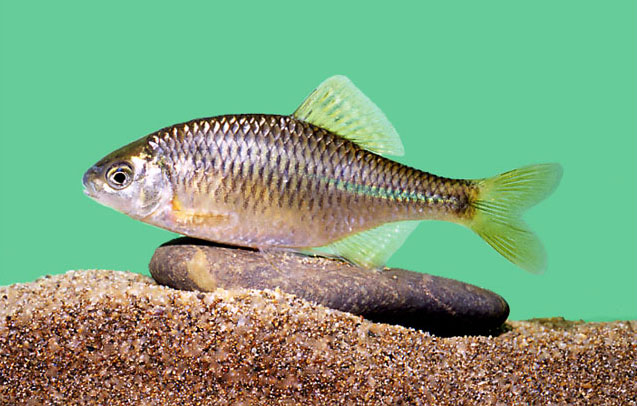| Acheilognathidae (Bitterlings) |
| 11 cm TL (male/unsexed); max. reported age: 5 years |
|
benthopelagic; freshwater; pH range: 5.80000019073486 - 6.30000019073486; dH range: 2 - 3; depth range - 0 m, potamodromous |
| Asia. Amur basin and Sakhalin Island, Russia. Introduced elsewhere. |
|
Dorsal spines (total): 3-3; Dorsal soft rays (total): 8-10; Anal spines: 3-3; Anal soft rays: 8-10; Vertebrae: 34-38 |
| Occurs in ponds, lakes, marshes, muddy and sandy pools and backwaters of rivers (Ref. 5723). Feeds mainly on plant material but also on small larvae of insects. Its occurrence is related to those of the bivalve Anodonta cygnea and other freshwater mussels (Ref. 30578). Known for its habit of laying its eggs in the mantle cavity of freshwater mussels (Ref. 1739). Reproduction takes place from April to June (Ref. 30578). |
|
Least Concern (LC); Date assessed: 15 April 2020 Ref. (130435)
|
| harmless |
Source and more info: www.fishbase.org. For personal, classroom, and other internal use only. Not for publication.

